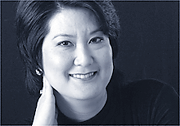Advertisement - Click to support our sponsors.


Changing Hawaii
IT'S easy to guess which Honolulu newspaper I read every day, but do you know which local television newscast I watch every evening? The answer: All four of 'em. I don't own four TV sets. Thanks to my remote control, it's possible to view more than one half-hour show at once, albeit for mere moments at a time. Participating in the
death of hard newsEvery night at 6 and 10, I zap among the talking heads on FOX, KITV, KGMB and KHNL, readily hopping channels during commercial breaks, boring stories or seemingly unpertinent issues.
In other words, I'm a fervid but fickle fan. My standing challenge to TV news directors: Keep me interested or I'm switching stations, pal.
Frankly, I didn't see anything wrong with watching TV newscasts this way. In fact, I was quite proud of my energetic, active style of viewing -- until reading Saturday's Insight cover story, "No news," by Gerry Keir.
The former longtime editor of the Advertiser grimly explained how more and more Americans (including Hawaii residents) are losing interest in reading daily newspapers and watching TV newscasts.
Keir pointed out that, because of this waning appetite for news, daily papers -- especially afternoon ones like the Star-Bulletin -- are going out of business or resorting to less hard news coverage and more fluff stuff.
Meanwhile, on the small screen, dwindling viewerships have led to newscasts "dumbing down" their own coverage to keep and retain people's attention. For example, Keir cited the statistic that -- despite the U.S. homicide rate dropping 20 percent between 1993-96 -- coverage of murders on network news jumped 721 percent in the same period.
Overall, the number of feature stories on newscasts have soared, while hard news like the Pentagon beat has crashed and burned.
The news about news gets worse: On any given day in this country, half the population is neither reading a daily newspaper nor watching TV news. This means 50 percent of the public doesn't know diddly about what's happening around them.
No, they're not surfing the Web for headlines either, because even the most popular online news outlets aren't being swamped by hits, nor are they watching 24-hour news networks like CNN or MSNBC.
They've simply checked out of the need to know, depending on others to enlighten them or thinking they can't be bothered with what's on newsprint, online or on the tube. Is that scary or what?
SO what happens if the person next to you doesn't know or care about what is going on 1) in government, which makes the laws and spends tax dollars; 2) in churches, commerce and influential groups, which shape societal mores, wants and needs; 3) within schools, which educate future leaders and voters; and 4) in our day-to-day lives, which can be made even more onerous if folks are existing in a knowledge vacuum? That's right: chaos.
But I had no right to feel holier-than-thou. Suddenly, I realized that even a news junkie like me had been an active participant in the demise of hard news. That, when I zap through newscasts because of boredom, or when I'm only reading parts of the newspaper that are scintillating or pertinent to me, I am personally contributing to the demise in the quality and breadth of journalism.
Imagine that -- one of the culprits responsible for the dumbing-down of the news. Do I feel stupid.
Diane Yukihiro Chang's column runs Monday and Friday.
She can be reached by phone at 525-8607, via e-mail at
dchang@starbulletin.com, or by fax at 523-7863.